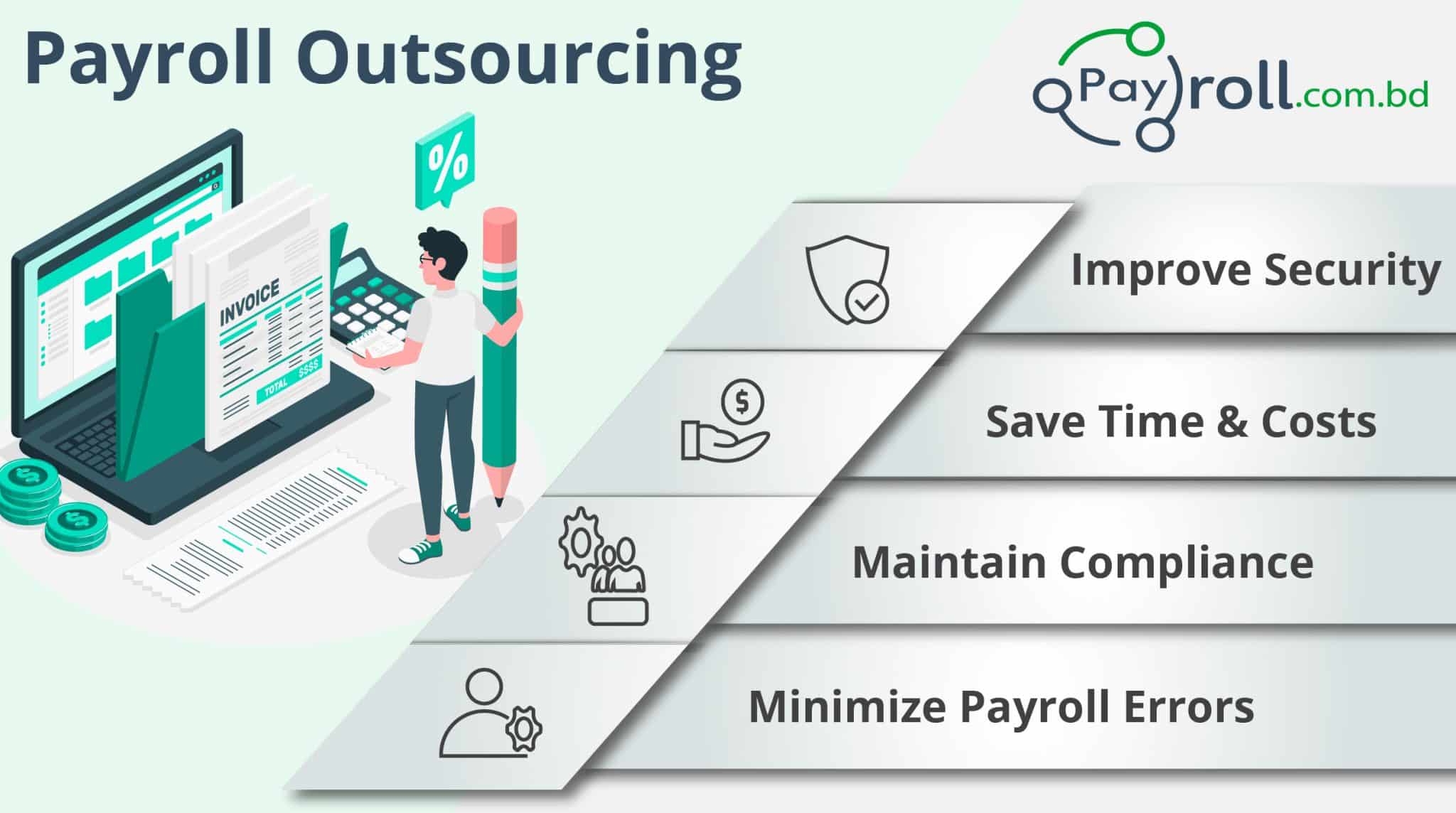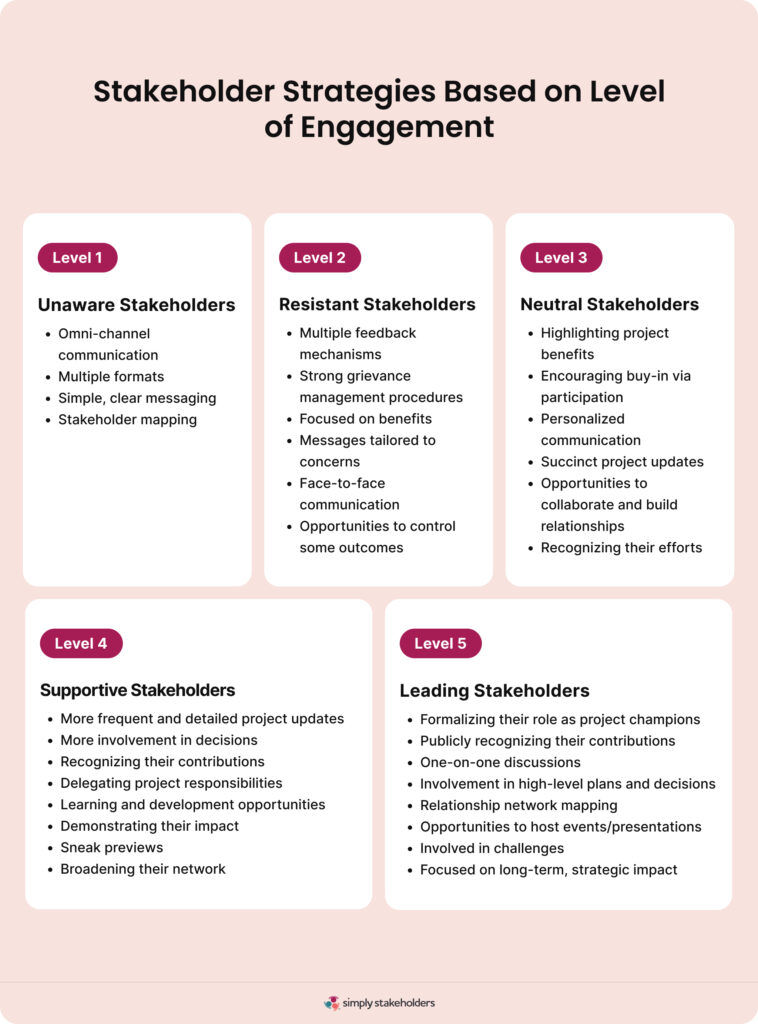Cette entreprise n'a pas de postes à pourvoir
0 Avis
Noter cette Entreprise (Pas d'avis pour l'instant)
About Us
What is Payroll Outsourcing?
What is payroll outsourcing?
Payroll outsourcing is hiring a third-party service provider to deal with payroll-related tasks, including calculating and validating wages and wages, deducting and transferring funds for tax withholdings, making sure pre- and post-tax advantage reductions are processed, printing incomes, setting up direct deposits, and preparing payroll reports and journals for general journal entries.

An outsourced payroll business will need access to your company savings account and employee time tracking system. This requires trust in between the company contracting the payroll service and the service itself. A lawfully binding service agreement describing the payroll outsourcing company’s terms, conditions, and expectations strengthens that trust.
Companies that work with a payroll contracting out provider may also want to outsource PEO or HR services. Look for a « full-service payroll company » to deal with that. Their services normally include handling staff member benefits, tax filing, and human resource functions like onboarding and evaluating health insurance providers. Pricing will be based on the variety of staff members.
Why should a business outsource payroll?
There are several reasons that an organization ought to think about outsourcing payroll. Two of them are tax compliance and accurate tax reporting. A payroll expert is trained in both functions. A third-party supplier will have a payroll team of experts working on your account. They’ll handle the payroll obligations, tax withholdings, and employee advantages.
Outsourcing saves time
Payroll processing is time-consuming. Payroll administrators track and carry out benefit reductions, wage garnishments, paid time off, overdue time off, taxes, and payroll errors. They likewise require to be aware of information security issues that might emerge during the onboarding when they gather worker data. A payroll business can manage all that for you.
Outsourcing can reduce costs

The time staff members invest processing payroll in-house and the salary of the payroll supervisor are costs. A small company can invest a substantial portion of its income on those expenses. It’s frequently less expensive to hire a payroll processing service. Prices for some payroll services are as low as $40 monthly to manage standard payroll functions.
Outsourcing guarantees tax accuracy
Small businesses can not afford mistakes in payroll taxes. The penalties and fees examined by state and IRS tax auditors can be considerable. A recognized payroll provider will guarantee that the right quantity of taxes will be kept and transferred on time. They presume the responsibility and liability for that, providing your company peace of mind.
Outsourcing supplies data security
Payroll companies utilize advanced security procedures to secure worker info. That consists of preserving confidentiality on concerns like wage garnishment, payroll mistakes, and corporate tax filing. Companies with a self-service payroll system or on-site benefits supervisor do not generally execute the very same security procedures.
Outsourcing gets rid of software issues
The expenses of setting up, preserving, and repairing payroll software build up quickly when you have a large workforce. Hiring the right payroll company removes that issue. They have their own software, and it’s included in what you pay them. That can streamline accounting processes like expenditure management and enhance your capital.
Outsourcing comes with a payroll support team

Companies that do payroll separately generally have one person responding to support problems. Outsourcing brings in an assistance group that can deal with concerns about direct deposit, advantage reductions, tax liability, and more. This also falls under « cost conserving » since someone who would otherwise be handling service problems can be redeployed in other places.
What is payroll co-sourcing?
Another alternative for small companies that require help is payroll co-sourcing. This is a hybrid design in which payroll tasks are split between the service and the third-party payroll supplier. For instance, the payroll company handles tasks like data entry, tax estimations, and releasing incomes or direct deposits. The main business keeps control over the motion of payroll funds and making tax withholding deposits.
Special considerations for international payroll outsourcing
Most small company owners in the United States do not require to deal with global payrolls. If you expand your services or hire customized employees outside the nation, that could alter. International payroll services consist of multi-currency capability, for the nations you’re doing business in, and worldwide tax rates and tables.
The payroll requirements of employees in other nations vary from those in the United States. For example, 35 hours is thought about a full-time work in France. Your business would require to pay overtime for anything over that. You do not need to pay social security tax. You may, however, require to pay US business earnings tax.
Benefits administration for a worldwide payroll is different likewise. HR groups with companies doing in-house payroll will be accountable for examining health insurance coverage requirements and maximum retirement contribution guidelines in the nations where you have employees. The service requires to do that every pay period if you’re actively recruiting. That’s a lot to keep an eye on.
How payroll outsourcing works
Outsourcing involves transferring payroll data. Automation streamlines that, so you’ll wish to discover a payroll service with excellent technology. Best practices suggest opening a separate business savings account specifically for payroll. Many business set up sub-accounts of their primary savings account to simplify the transfer of funds to cover payroll checks and direct deposits.
Planning to contract out payroll
The next action is to decide what degree of outsourcing is suitable. Turning « all things payroll » over to a third-party company might not be the most economical solution. Some services pick to co-source payroll, keeping some of the payroll jobs in-house. That gives the organization control over the procedure without taking on a heavy workload.
Picking a payroll contracting out partner
A lot goes into picking the right payroll contracting out partner. Working with somebody you trust is very important, so find a payroll business with a good credibility. If you’re co-sourcing, you’ll need a partner going to share the work. Using payroll software application is also an alternative. Many payroll software service providers have live support groups.
Setting up and running payroll
Decide how typically you desire to run payroll. Some business do it weekly, while others prefer biweekly or monthly. Once you pick a payroll cycle, run a sample check with a pay stub to ensure the system works correctly. Your outsourced payroll business will likely do that anyhow. If not, request it so you can see how the procedure works.
Facilitating staff member self-service
Outsourced payroll companies normally use online portals where employees can see their net earnings, advantages, and tax reductions. Directing them there rather than to a live support center is a terrific method to decrease corporate spending. It might take a while for workers to embrace this approach. Stay constant with your messaging until it takes hold.
Payroll tax and compliance concerns
Employers are ultimately accountable for paying payroll taxes, even if they contract out payroll to a third-party company. The payroll company can streamline your operations to make them more economical, and it can handle the obligation of tax withholdings and deposits. However, any IRS charges for mistakes will be levied against the primary service.
IRS correspondence is always sent out to the primary organization, not the third-party provider. They do not send out a copy to your payroll business. You can alter your address to the payroll business, however the IRS does not suggest that. If mail is mishandled or accountable parties are not in the office, your firm could be on the hook for their mismanagement.
Federal tax deposits must be made through electronic funds transfer (EFT) to abide by IRS regulations on payroll. The IRS has a system called the Electronic Federal Tax Payment System (EFTPS) to assist in that. Businesses are assigned a company recognition number (EIN) that needs to be offered to the payroll business if you’re going to outsource.
Please seek advice from a tax professional to provide additional assistance.
Best practices for outsourcing payroll
Relinquishing control over your payroll is a huge offer. Following these best practices will assist make the search for a supplier and the transition smoother. It’s likewise suggested that you don’t do this alone. Form a group at your business to investigate payroll outsourcing, then take a moment to examine these and the « Frequently Asked Questions » section listed below.
Choose a reliable payroll provider
Reputation ought to be critical in your look for a third-party payroll company. This is not a service you want to shop by cost. Search for online reviews. Ask other organization owners who they are utilizing. You can likewise talk to your bank or inspect the Integrations Page on our site. Rho connects to accounting, ERP, and personnels business with payroll partners.
Check out guidelines and tax responsibilities before outsourcing
Your business is eventually accountable for employee tax withholdings and payroll tax deposits to local, state, and federal income departments. You can outsource those obligations, but you’ll pay the rate for any mistakes. Read up on this and other policies that impact how you pay your workers. Make sure you understand what your tax obligations are.
Get stakeholder buy-in
Your employees are your stakeholders. Consulting them about moving to an outdoors payroll business will make the shift much easier for you and your management group. Many employers begin the outsourcing procedure by conversing with their employees about what they desire from a payroll company. This can likewise assist you build a benefit package.
Review software options
One option to outsourcing is using payroll software that automates much of the payroll processing. While this might not completely totally free you from dealing with payroll concerns, it could streamline preparing and releasing paychecks and direct deposits. Review software application options before choosing an outdoors company to deal with payroll and benefits.
Build redundancies for accuracy
Running a payroll in parallel with the payroll being run by an outsourced service provider develops a redundancy to make sure accuracy. Consider it as a check and balance system that safeguards you if the payroll company goes down for any reason. When things run smoothly, you won’t need to process checks. When they do not, you’ll have the ability to do so.
Payroll outsourcing FAQs

How does payroll outsourcing work?
Payroll outsourcing is transferring payroll jobs and duties to a third-party payroll service provider. Depending on the agreement in between the primary company and the payroll company, the service provider can be responsible for all or simply a few of the payroll tasks. Examples of payroll jobs are validating wages, deducting and transferring payroll taxes, and printing incomes.
Is payroll outsourcing an excellent concept?
Companies that outsource payroll can decrease the expenses of managing and delivering staff member settlement. Some outsourced payroll business likewise provide human resources, which can streamline company operations. Those are both good concepts, however outsourcing will come down to your organization requirements. It’s a great idea if it improves your bottom line.
Who are some common payroll contracting out partners?
Gusto, Paychex, and ADP are three of the most widely known payroll business. QuickBooks, a popular accounting platform for small companies, likewise has a payroll service. If you do service globally and need multiple currencies and worldwide compliance, inspect out Rippling Global Payroll. For human resources, take a free demonstration of BambooHR.
Can I do payroll myself?
Yes, you can do payroll yourself. However, if you wish to do it precisely, you’ll require the best payroll software. Doing it without software leaves too much space for error.
When does it make sense for a company to begin payroll outsourcing?
Companies can outsource their payroll at any time. It’s generally a good idea to begin pricing payroll services when you get close to ten staff members. Evaluate the expense and the time it takes to process payroll weekly. You’ll know when it’s time to make a move.
Conclusion: Simplify payroll with Rho and Gusto
Outsourcing payroll to another business can be a good move for lots of services. But it is very important to thoroughly research the outsourcing process, understand your tax obligations, and fully vet any company you’re considering as a third-party payroll processor.
Once you do choose on one, Rho has direct integrations with among the most popular choices on the marketplace today: Gusto. Through this direct integration, groups on Gusto can get set up quickly with Rho and begin running payroll more effectively. With Gusto, teams can look forward to not only enhanced payroll procedures, however HR, too. By getting rid of the friction from these vital work streams, groups can concentrate on other aspects of their business, all while staying a certified, effective, and trustworthy.
Learn more about Rho’s integrations today.
Any third-party links/references are offered educational purposes just. The third-party websites and material are not endorsed or managed by Rho.

Rho is a fintech company, not a bank. Checking and card services supplied by Webster Bank, N.A., member FDIC; savings account services provided by American Deposit Management Co. and its partner banks.
Note: This material is for informational functions just. It doesn’t necessarily reflect the views of Rho and ought to not be interpreted as legal, tax, benefits, financial, accounting, or other recommendations. If you require specific recommendations for your organization, please consult with a professional, as guidelines and guidelines change regularly.



